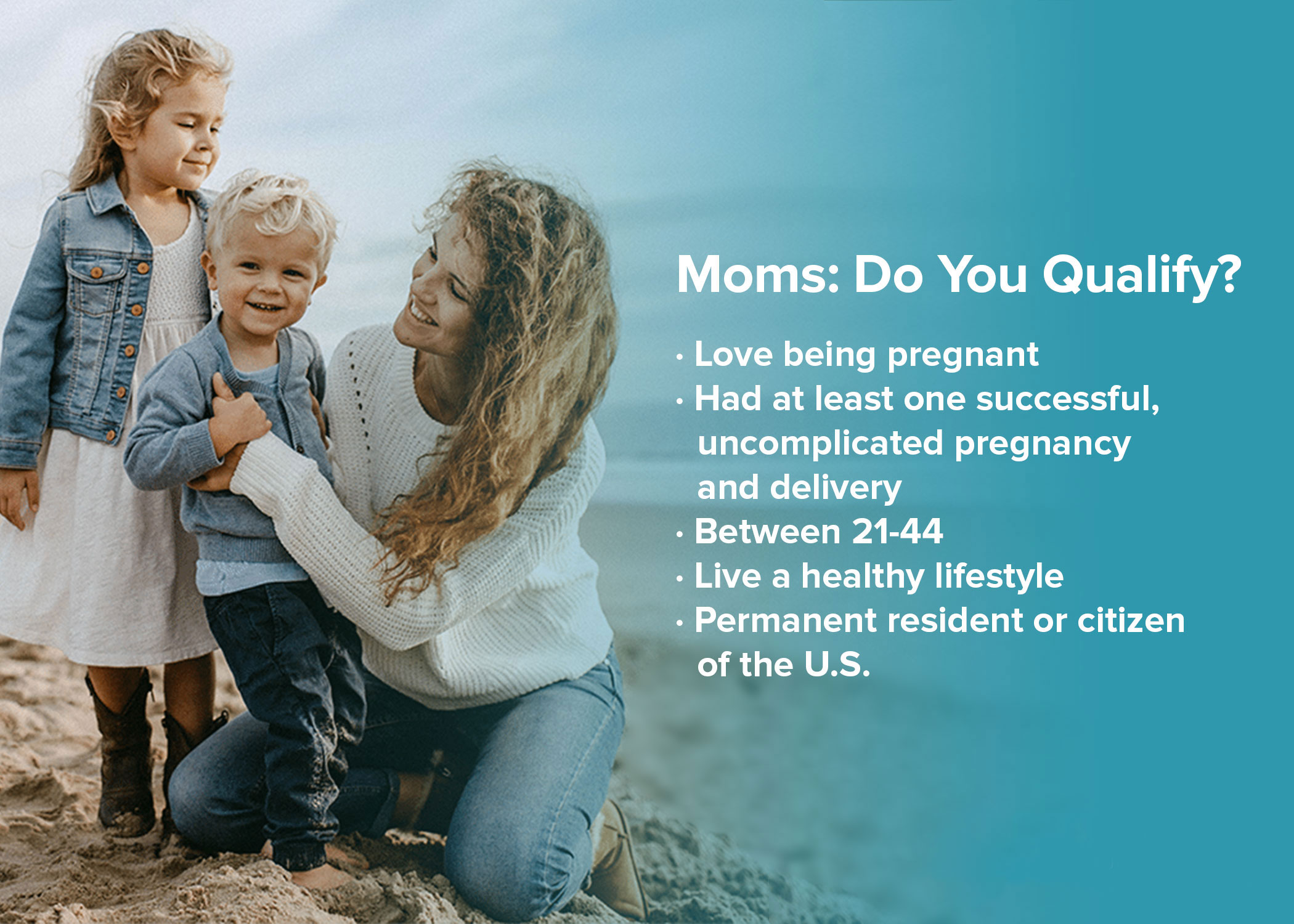
Thank you for considering becoming a CACRM surrogate. Our surrogacy sisterhood is a group of generous, compassionate women who want to help individuals create or grow their families while building meaningful relationships with their intended parents. Through surrogacy, they hope to help a family’s future.
Many wonderful women apply to become CACRM surrogates. However, applicants must meet basic requirements to proceed to the evaluation, matching, and selection processes.
Surrogates are women who:
- Love being pregnant and may have completed having their own children
- Have had at least one successful, uncomplicated pregnancy and delivery
- Are between the ages of 21 and 44
- Live a healthy lifestyle
- Are a permanent resident or citizen of the United States
The California Center for Reproductive Medicine follows the surrogate requirements and clinical guidelines of the American Society for Reproductive Medicine (ASRM), the leading reproductive medicine professional association.
Our top priority is the health of the surrogate and the baby she carries. We established these guidelines to ensure the surrogacy journey is successful for everyone involved.
Age
Following ASRM recommendations and to increase the chances for a healthy pregnancy and uncomplicated childbirth, we look for surrogates between the ages of 21 and 44.
Obstetrics and Family History
We require a surrogate applicant to have delivered at least one child via a successful full-term pregnancy and raised a child in her home. These are mandatory requirements.
Ideally, she previously will have undergone no more than five deliveries after uncomplicated pregnancies, including at most three cesarean sections. An obstetrician/gynecologist must clear a mother with more than three C-sections or if her last delivery was less than a year ago or more than five years ago.


Healthy Lifestyle
CACRM is looking for gestational carriers who do not smoke, drink alcohol excessively, or take unauthorized prescriptions or illegal drugs.
During the evaluation process, treatment, and pregnancy, we will ask you to stop drinking alcohol and limit the amount of caffeine to less than 200 mg daily, roughly one or two cups of coffee.
Before she signs a legal contract or begins IVF, we will give the surrogate candidate a urine toxicology screen to reveal if any medications she takes could be detrimental to IVF or pregnancy.
Body Mass Index (BMI)
Surrogates should have a Body Mass Index (BMI) in the normal range, which is an important factor for a successful surrogate pregnancy. BMI measures body fat based on height and weight.
We want to avoid extremes of being underweight or overweight; both extremes can increase the chances of unhealthy pregnancies. Obesity during pregnancy can cause problems for both the carrier and the baby, resulting in diabetes and hypertension. Being severely overweight can compromise the success of the embryo transfer.
Vaccinations
CACRM requires gestational surrogates to supply current immunization records with up-to-date vaccinations or undergo testing to verify immunization status.
